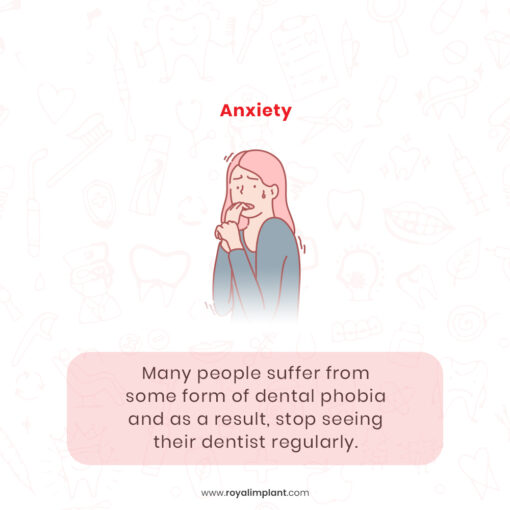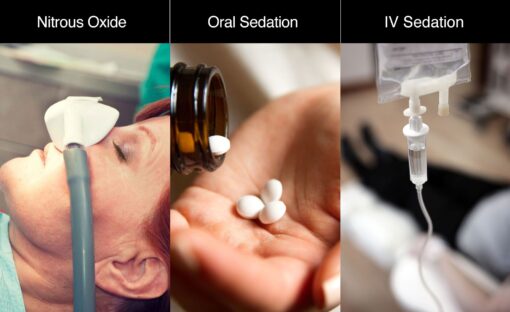If you suffer from dental anxiety, you are not alone. Many people experience fear and dread when it comes to visiting the dentist. The good news is that it doesn’t have to be this way. With a few simple steps, you can learn to conquer your fear and make the most of your dental appointments. Here are some tips for overcoming your fear of the dentist and taking control of your oral health. By understanding the causes of dental anxiety, developing coping strategies, and finding a dental home, you can become more comfortable with dental care and enjoy better oral health.
What is Dental Anxiety?
Dental anxiety is a feeling of fear, dread, or panic that many people experience when visiting the dentist. It can range from mild discomfort to an intense phobia of having any kind of dental procedure. In some cases, it can even lead to avoidance of necessary dental care, which can lead to poor oral health.
If you experience dental anxiety, it is important to understand that it is normal and that you are not alone. It can be caused by a variety of factors, including a traumatic experience at the dentist, fear of pain, or fear of the unknown. Many people also find that their anxiety is rooted in a fear of judgment or insecurity about the appearance of their teeth. The most important thing to remember is that dental anxiety can be managed and even overcome with the right approach. Here are some steps you can take to make your dental visits more comfortable and productive.
Causes of Dental Anxiety
The cause of dental anxiety can vary from person to person. It is important to identify the underlying cause so that you can take steps to address it by visiting the dentist. Here are some common causes of dental anxiety:
Fear of pain: One of the most common causes of dental anxiety is fear of pain. People who have had a painful dental experience in the past may be more likely to experience anxiety during future visits.
Fear of needles: Many people are afraid of needles, and the thought of receiving a local anesthetic injection can cause anxiety.
Financial concerns: People who are worried about the cost of dental care may be anxious about going to the dentist.

Fear of loss of control: Some people may feel anxious or fearful about being in a vulnerable position during a dental procedure, such as lying back in the dental chair with their mouth open.
Fear of the unknown: People who are unsure about what to expect during a dental procedure may experience anxiety.
Past traumatic experiences: People who have experienced trauma or abuse in the past may be more likely to experience dental anxiety.
Embarrassment: Some people may feel self-conscious or embarrassed about the appearance of their teeth or the condition of their oral health, which can lead to anxiety about visiting the dentist.
Negative attitudes towards dentistry: Some people may have negative attitudes or beliefs about dentistry, such as the idea that dental procedures are painful or unnecessary.
Recognising Your Triggers for Dental Anxiety
Once you have identified the underlying cause of your dental fear, it is important to recognise the triggers that may be causing your fear. Common triggers include specific sounds, smells, or sensations that are associated with the dentist. By recognizing and addressing your triggers, you can take steps to reduce your anxiousness.

Coping with Dental Anxiety
Once you have identified the causes and triggers of your dental anxiety, it is important to take steps to manage it. Here are some tips for coping with dental anxiety:
Prepare ahead of time: Taking time to research and learn about the procedure beforehand can help to reduce anxiety.
Utilise relaxation techniques: Taking time to practice deep breathing or mindfulness can help to reduce stress and anxiety.
Talk to your dental professional: Let your dental professional know that you experience anxiety during dental visits. They can work with you to create a personalized plan to make your visits more comfortable.
Bring a friend or family member: Having someone you trust with you during the dental procedure can provide support and comfort.
Dental anxiousness, also known as dental phobia, can make it difficult for some people to visit the dentist regularly, which can lead to dental problems and oral health issues.
Practice relaxation techniques: Deep breathing, meditation, and visualization techniques can help you relax and reduce anxiety during dental procedures.
Use distraction techniques: Bring headphones and listen to music or an audiobook during your dental procedure. This can help take your mind off the procedure and make it more bearable.
Try sedation dentistry: Sedation dentistry involves the use of medication to help you relax and reduce anxiety during dental procedures.
Gradual exposure: If you have severe dental anxiety, consider gradually exposing yourself to the dental environment. Start by simply sitting in the dental chair for a few minutes, and gradually work your way up to a full dental procedure.
Finding a Dental Clinics for Anxiety
Having a good relationship with your dentist can go a long way in helping to reduce dental anxiety. It is important to find a dentist who is understanding and supportive and who takes the time to explain the procedure and answer your questions. It can also be helpful to find a dental home, a practice that you can return to for routine checkups and other procedures.
Reducing Pain and Fear During Dental Appointments
One of the most common causes of dental fear is of pain. Many dentists are experienced in working with anxious patients and can provide support and reassurance. Your dentist may also be able to provide options for reducing pain. For example, they may suggest the use of a numbing agent or sedation dentistry.
Utilising Relaxation Techniques for Dental Anxiety
Relaxation techniques can be very helpful in managing dental fear. Taking time to practice deep breathing or mindfulness can help to reduce stress and anxiety. It can also be helpful to listen to music or focus on a particular object during the procedure.

Conclusion
Dental anxiety can be a difficult and overwhelming experience, but it does not have to be. With the right approach, you can overcome your fear and take control of your oral health. By understanding the causes of dental anxiety, developing coping strategies, and finding a dental home, you can become more comfortable with dental care and enjoy better oral health. Remember, dental anxiety is common, and many people experience it to some degree. With the right strategies and support, you can overcome dental anxiety and maintain good oral health.






